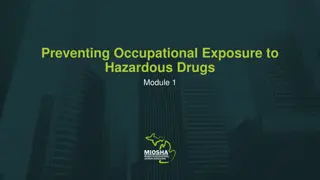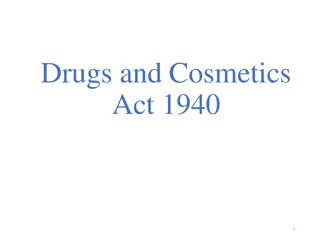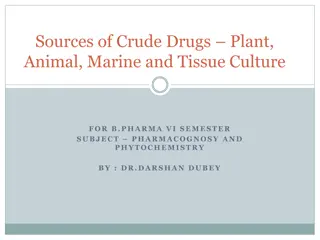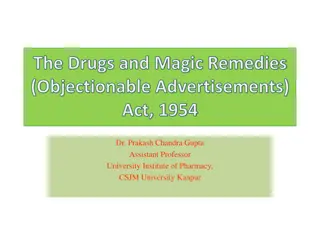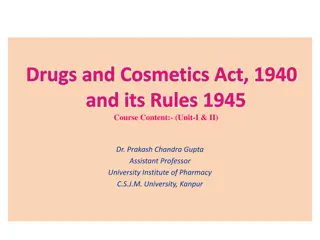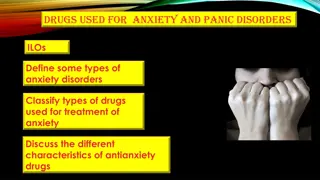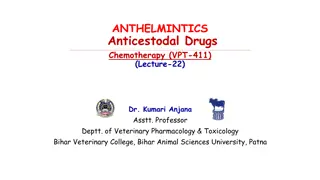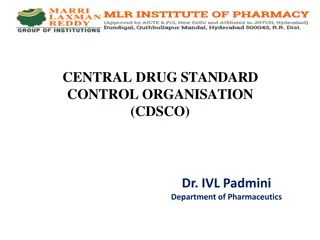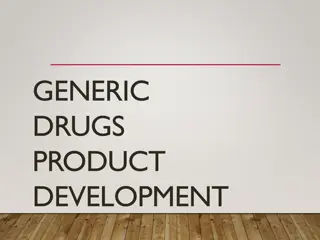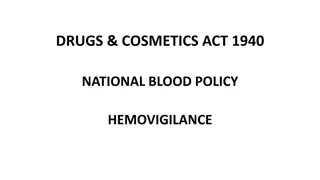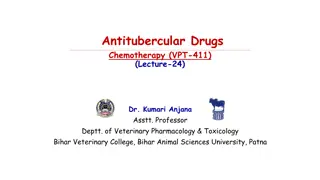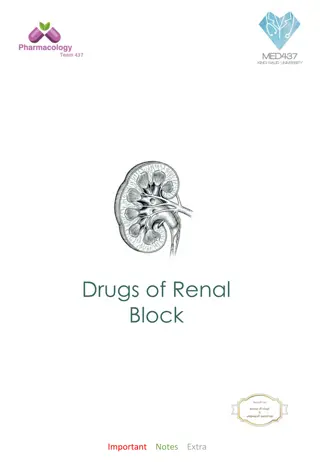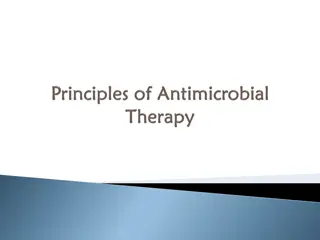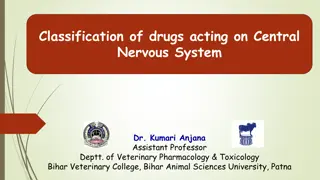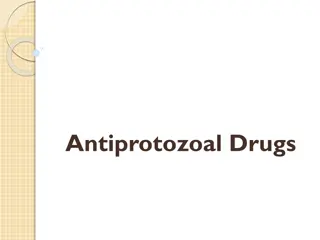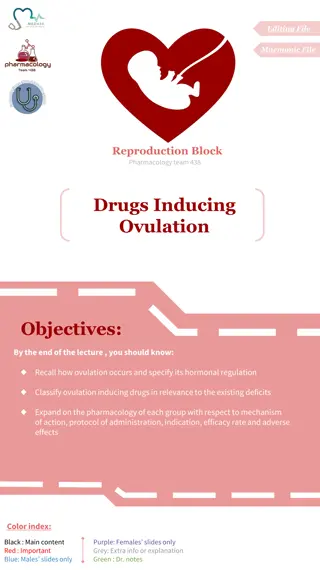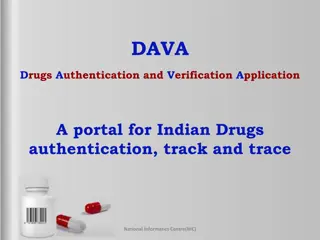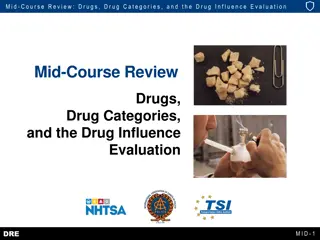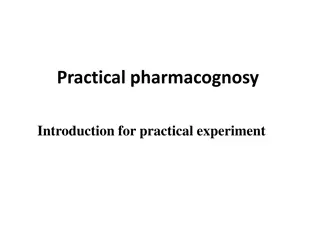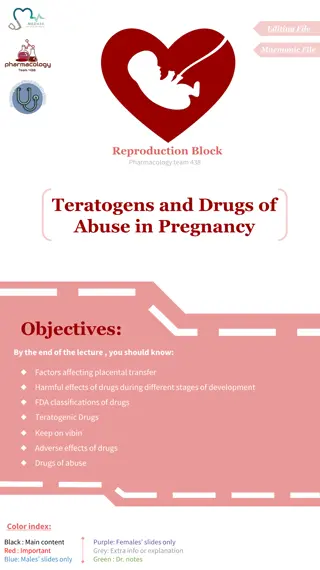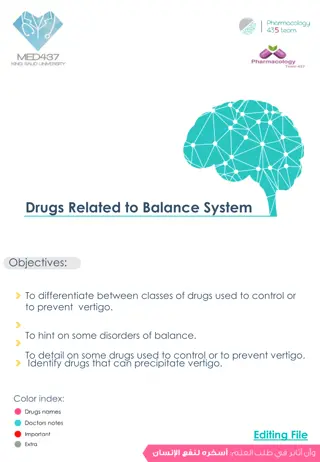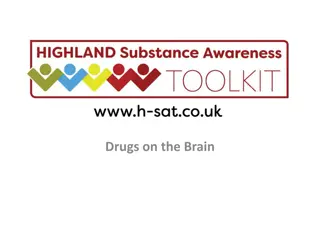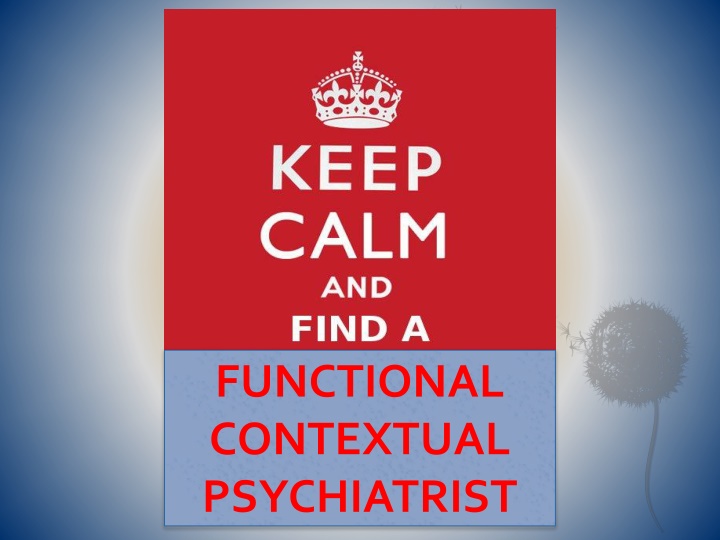
Functional Contextual Pharmacology in Psychiatry: Moving Towards Workable Medication Use
Explore the integration of Functional Contextual Pharmacology in psychiatric practice to address medication-related obstacles. Discover how this approach enables wise and workable medication use in alignment with client values and goals.
Download Presentation

Please find below an Image/Link to download the presentation.
The content on the website is provided AS IS for your information and personal use only. It may not be sold, licensed, or shared on other websites without obtaining consent from the author. If you encounter any issues during the download, it is possible that the publisher has removed the file from their server.
You are allowed to download the files provided on this website for personal or commercial use, subject to the condition that they are used lawfully. All files are the property of their respective owners.
The content on the website is provided AS IS for your information and personal use only. It may not be sold, licensed, or shared on other websites without obtaining consent from the author.
E N D
Presentation Transcript
FUNCTIONAL CONTEXTUAL PSYCHIATRIST
ACT on Drugs Functional Contextual Pharmacology Dr Robert Purssey MBBS FRANZCP Functional Contextual Psychiatrist Clinical Senior Lecturer, Uni of Qld Brisbane ACT Centre, Queensland
MOVING TOWARDS WORKABLE MEDICATION USE - TOGETHER 1. What is important to you and your clients? 2. What medication-related obstacles get in the way for you and them? 3. What do you and your clients do to move Away from these medication-related obstacles? 4. Can Functional Contextual Pharmacology help? 5. What can we and our clients do to move Toward those things important to us and them?
Functional Contextual Pharmacology CBS - Seamlessly consistent with ACT Functionally informed medication use Enabling workable, wise medication use Things that you re liable To read in the (psychiatric) bible Ain tnecessarily so
Behavioral Pharmacology 1950s J. R. Pappenheimer, B. F. Skinner, and P. B. Dews
Functional Contextual vs Mechanist Functional Contextual Pharmacology Mechanist Cognitivist Psychopharmacology
Decontextualised Mechanistic analysis Functional contextual analysis
Functional contextual intervention What s true is what works in relation to a specified direction or goal. Mechanistic intervention What s true is what corresponds most closely to a measurable reality.
Functional contextual treatment What s true is what works ...Towards valued living DSM / syndromal treatment Less difficult feelings and thoughts Less items on checklists of troubles
Context & heroin: rats Lethality of heroin in 3 groups: 2 tolerant (colony VS white noise), 1 control LETHAL DOSE GIVEN: 96% lethality - Control 64% lethality - NEW envt CF tolerance 32% lethality - SAME envt as tolerance
CONTEXT & heroin - rats & humans Siegel et al. 1982 Heroin overdose death: Contribution of drug-associated Environmental cues. Science.
Situational Specificity of Tolerance Overdose deaths in humans due to: 1. Opioids 2. Alcohol 3. Pentobarbital Understanding / Preventing Overdoses clinically 3 human OD s reflected this mechanism, as these patients normally did not inject on staircases / toilets Deaths of heroin users in a general practice population. Bucknall and Robertson, J R Coll Gen Pract. 1986
Functional contextual treatment What s true is what works ...Towards valued living DSM / syndromal treatment Fewer difficult feelings and thoughts Decreases in items on symptom lists
Trends in psychotropic meds in Australia: 2000 - 2011 Stephenson et al, Aust N Z J Psychiatry 9.11.2012 ANTIDEPRESSANTS DOUBLED ATYPICAL ANTIPSYCHOTICS TRIPLED ADHD MEDS DOUBLED XANAX DOUBLED LAMOTRIGINE DOUBLED AND AUSTRALIAN S MENTAL HEALTH? NO IMPROVEMENT Changes in psychological distress in Australian adults 1995 - 2011. Jorm and Reavley, Aust N Z J Psychiatry 2012
Trends in psychotropic meds in Australia 2000 to 2011 Figure 1. Share of market (DDD/1000 population/day) per class
DSM depression depressed mood most of the day.. DSM anxiety - excessive anxiety
Emotional Side-effects of Antidepressants Price J Goodwin G. Journal of Affective Disorders 2012 Because I don t care so much, I m having problems at home I don t have the same passion and enthusiasm for life Other people being upset doesn t affect me Because I don t care so much, I m having problems at work or college Day to day life doesn t have the same emotional impact I don t react to other people s emotions as much I don t care as much about my day to day responsibilities I just don t care about things as much as I did
Emotional Side-effects of Antidepressants Percentage of emotional side effects overall 207 participants 26% no emotional side-effects 16% insignificant emotional s/e 30% mild 23% moderate 6% severe emotional s/e s Participants with emotional side-effects younger higher BDI-II scores shorter treatment duration.
Data Based Medicine - health warning Doctors most persuaded people on earth Many resist company adverts / free lunches Unaware that trials / guidelines are advertisements Guidance / awareness will shock many doctors Clever marketing -> many feel personally attacked No-one should have to cope with present uncertainties RxISK papers are disturbing think twice before reading
DBM Position Paper - Antidepressants 1000 s publications, over 1000 trials 50-90% ghost-written 40 50% of studies unpublished 30% of POSITIVE studies actually NEGATIVE Risks are not published www.rxisk.org research papers
STAR D, NIMH published V real results "The overall cumulative remission rate was 67% But closer review found 4041 started, 108 remitted, the rest either relapsed and/or dropped out remission rate 2.7% I think their analysis is reasonable and not incompatible with what we had reported
DBM on Guidelines for Antidepressants Published trials of good quality ? Almost all only a few weeks No quality of life measures Scales improve with side effects RECOGNIZED GUIDELINES? None score Quality Mark > 1 /10 Independent guidelines superior? -> identical HENCE more dangerous COCHRANE? Sertraline Antidepressants for children Tamiflu
THERE IS NO CHEMICAL IMBALANCE 40 years of neurotransmitter theories NO EVIDENCE NO serotonin or norepinephrine deficiency Professor of Neuroscience E.Valenstein there is no real monoamine deficit Psychopharmacologist Stephen Stahl NO simple neurochemical explanations Kenneth Kendler Antidepressants affect processes unrelated to the pathology of depression Krishnan and Nestler, AJP in press 2010
Functional Contextual Therapy AND Pharmacology Not FIXING thoughts and feelings or chemistry and biology Functional contextual view of behavior of biology of medications Destructive normality
Flexible, pragmatic pharmacology Let go of DSM except where necessary Drop symptoms illness symptom removal especially remission is the goal Frees from experiential struggle overmedicating / chronicity Meds Toward valued living edge off so as to do stuff Meds Away from unwanted experiencing ridding bad feelings / thoughts
ACT on Drugs Resources Functional Contextual Pharmacology 1. Email ACT on Drugs 2012 Matrix Sorting to robpurssey@gmail.com also www.davidhealy.org www.rxisk.org Join! & Research Papers at bottom 2. 3. ACT on Drugs 2011 Log into ACBS site, Videos The 5th Australian and New Zealand ACT Conference Day 3, Stream 3, 2-5pm in 2 parts. Also highly relevant is Functional Contextual Neuroscience Day 1, Stream 4, 10am 4. Contextual Medicine SIG via ACBS site 5. Healthy Skepticism JOIN! and contribute 6. Anatomy of an Epidemic, and Whitaker s site

